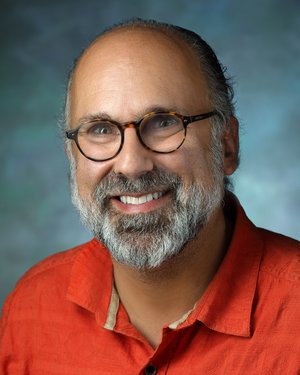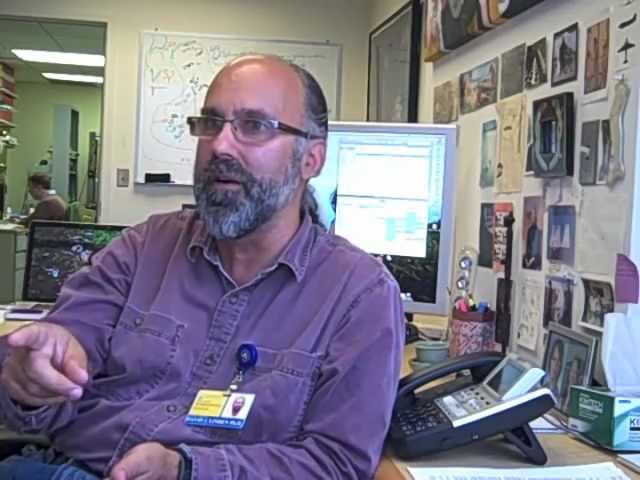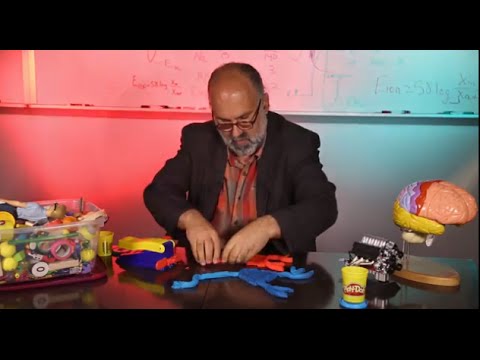Research Summary
Over the last 20 years, a series of experiments that have used behavioral tasks together with extracellular recording, reversible inactivation and transgenic manipulations have produced a strong case that the cerebellum is critical for some forms of motor learning. In particular, long-term potentiation and depression (LTP and LTD) of the parallel fiber-Purkinje cell synapse have been implicated in acquisition and extinction of eyeblink conditioning, respectively.
In recent years, Dr. Linden’s laboratory has used both electrode and optical recording in cerebellar slice and culture model systems to explore the molecular requirements for induction and expression of these phenomena. The Linden lab has found that induction of LTP in the parallel fiber synapse requires a presynaptic cascade of Ca influx/adenylyl cyclase I/cAMP/PKA and that its expression is also presynaptic. In contrast, induction of LTD at this synapse is triggered by postsynaptic activation of mGluR1 and AMPA receptors together with Ca influx, resulting in activation of PKC and consequent clathrin-mediated internalization of AMPA receptors.
The lab has also discovered a new form of plasticity, LTD at the climbing fiber-Purkinje cell synapse, which was not anticipated in models of cerebellar learning and which appears to share some induction requirements with parallel fiber LTD. They have subsequently expanded analyses to include use-dependent synaptic as well as non-synaptic plasticity in the cerebellar output structure, the deep nuclei. These investigations are central to an understanding the cellular substrates of information storage, and have potential clinical relevance for cerebellar motor disorders and for disorders of learning and memory.
Selected Publications
Thomas GM, Hayashi T, Huganir RL and Linden DJ. (2013). “DHHC8-dependent PICK1 palmitoylation is required for induction of cerebellar long-term synaptic depression.” Journal of Neuroscience. 1023 Sep 25; 33, 15401-15407.
Park JM, Hu JH, Milshteyn A, Zhang P-W, Moore CG, Park S, Datko MC, Domingo RD, Reyes CM, Wang XJ, Etzkorn FA, Xiao B, Szumlinksi KK, Kern D, Linden DJ and Worley PF. “A prolyl-isomerase mediates dopamine-dependent plasticity and cocaine motor sensitization.” Cell. 2013 Aug 1; 154, 637-650.
Kim YS, Kang E, Makino Y, Park S, Shin JH, Song H, Launay P, Linden DJ. “Characterizing the conductance underlying depolarization-induced slow current in cerebellar Purkinje cells.” Journal of Neurophysiology. 2013 Feb; 109(4):1174-81.
He L, Linden DJ, Sapirstein A. (2012) “Astrocyte inositol triphosphate receptor type 2 and cytosolic phospholipase A2 alpha regulate arteriole responses in mouse neocortical brain slices.” PLoS One 7:e42194.
Linden DJ. “A late phase of LTD in cultured cerebellar Purkinje cells requires persistent dynamin-mediated endocytosis.” Journal of Neurophysiology. 2012 Jan; 107:448-54.




Patient Ratings & Comments
The Patient Rating score is an average of all responses to physician related questions on the national CG-CAHPS Medical Practice patient experience survey through Press Ganey. Responses are measured on a scale of 1 to 5, with 5 being the best score. Comments are also gathered from our CG-CAHPS Medical Practice Survey through Press Ganey and displayed in their entirety. Patients are de-identified for confidentiality and patient privacy.